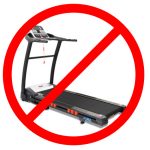Is your fitness or wellness business negotiating a new lease and buildout or renewing your lease?
This guide helps you protect your bottom line, plan your cash flow, and get the best terms possible.
Understanding lease expenses
Lease expenses will be calculated as the combination of:
(a) base rent, either triple net (NNN) or as full-service rent
Full-service rent typically includes payment of utilities, insurance and taxes in a lump sum payment to the landlord.
PLUS
(b) utility, taxes and insurance expenses if you do not have a full-service lease.
Retail leases are usually NNN leases. Office leases may be structured as NNN or as full-service.
Base rent will increase at a fixed annual percentage escalation rate based on what your broker negotiates for you in your lease.
Utility, taxes and insurance expenses will increase annually as well. Estimating future increases from previous annual percentage increases will provide you with a good estimation of future costs. Capping these expenses at a not-to-exceed percentage rate increase each year is a particularly effective way at decreasing your exposure to major cost increases for these expenses during your lease term.
When you sign your lease
You will generally need funds available to make:
- your security deposit payment
- PLUS your first month’s rent (if your rent is deferred for the first month, this payment will serve as a prepayment of your first month of actual rent)
- PLUS payment for any specialty items beyond the landlord’s standard buildout that you have agreed to pay the landlord to provide (discussed more below)
If your business is brand-new, you’ll also probably have to sign a personal guaranty or provide a larger security deposit than a more established business would.
Building out your space
It is helpful to be able to ballpark costs for your construction whether the landlord is building the space for you or you have hired your own contractor.
If you are paying for the buildout, you will of course want to get a good handle on costs. If the landlord is providing a turnkey buildout for you (providing the space per your needs) you will want to generally understand his costs to know how much is coming out of his pocket in order to fit out your space.
If these costs are amortized over the course of your lease, what is the calculation of these costs per month? This expense will be tied directly to the base rent you pay and you do not want to overpay on lease costs.
Many fitness, yoga and healthy lifestyle businesses need a wide-open, light-filled floor plan which is easy to re-lease and is a value-add for many landlords which means that you should not be paying much of anything for this type of buildout.
Ballpark costs for major East Coast metro areas for recent fitness leases I’ve negotiated follow, though getting a quick cost estimate from a respected contractor in your local area is critical.
· Shower: $2K
· Kitchenette: $5K
· Sound proof partition walls: $5K
· Ceiling sound proofing: $10K
· Paint and carpet: $5-$10/square foot
· Expedited permit: $9K
Renewing your lease
Start working with your broker on the renewal negotiation 18 months prior to lease expiration to lock in the best deal terms over the next 3-10 years.
This allows plenty of time to negotiate with the landlord and gives you enough wiggle room to threaten to leave for a lease at a new location (and potentially actually do so), which gives you leverage to negotiate the deal terms you want.
Depending on the size of space needed for your retail or office space, identifying a good location, negotiating a lease package, pulling a permit and building out space per your business requirements can generally take 9-18 months.
Financing Your Business
Find a bank that can help you better manage your cash flow and finance or re-finance at better terms. Look for one with a banking representative that cares about establishing a strong, long-term personal relationship with you. Look for banks with special offers for healthcare.
For instance, Capital One has particular deals, incentives and benefits for healthcare businesses. “Healthcare” for them is an expansive term that encompasses many fitness and wellness type businesses. Examples of incentives include saving up to $7,500 on closing costs on an owner- occupied real estate loan and a 2.99% introductory rate for 6 months on line of credit loans.
IMPORTANT: It’s imperative to know what deals have recently been negotiated in your local marketplace to make sure that you are not overpaying on lease costs.
You, your broker and your banker make a powerful team that can protect your bottom line and cash flow during lease negotiations.
Together, you’ll be able to negotiate a lease that fits your budget and treats your business fairly.




